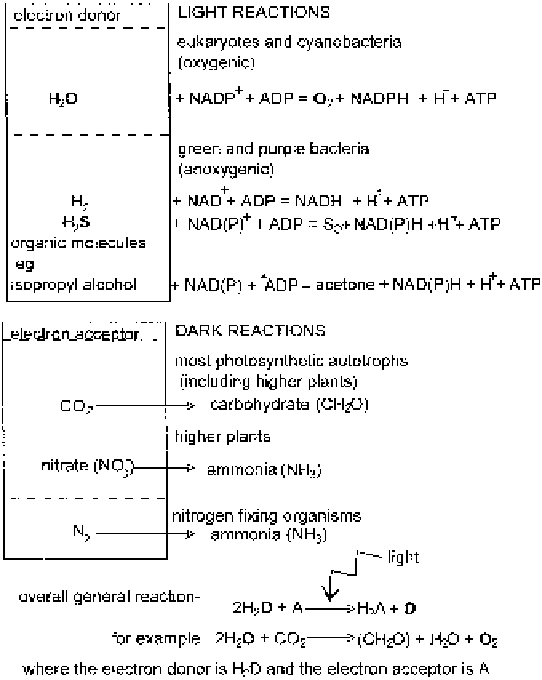Biomedical Engineering Reference
In-Depth Information
Figure2.11
Reactionsofphotosynthesis
hydrogen sulphide, which is the principle gas responsible for the foul smell,
reminiscent of rotten eggs, typically found in wet and untilled soil, for example
in the bottom of ponds, the product is sulphate or elemental sulphur. Examination
of bacterial photosystems explains how this occurs.
Green and purple bacteria possess only one photosystem which is a fairly basic
equivalent to photosystem 1 of eukaryotes and cyanobacteria, but employing a
different set of electron carriers. In purple non-sulphur bacteria, this is only capa-
ble of cyclic electron flow which produces a proton gradient and thus allows ATP
photosynthesis, but this process does not lead to NADPH production. A similar
system exists in green non-sulphur bacteria. The lack of a photosystem equiva-
lent to photosystem 2 in eukaryotes, requires these bacteria to provide a different
route for the regeneration of NADH which serves much the same function as
NADPH in carbohydrate synthesis. Their solution to this problem is to use as
electron donors, molecules which have a more negative reduction potential than

Search WWH ::

Custom Search